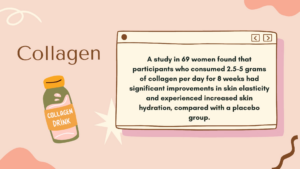The Essential Relationship Between Food and Mental Health The relationship between nutrition and mental health is becoming increasingly apparent, with scientific research showing that diet plays an essential role in promoting brain function and emotional well-being. At the core of this relationship is the gut-brain axis, a two-way communication network connecting the gut to the cognitive and emotional centers of the brain. In this blog, we look into the impact of nutrition on mental health via the gut-brain connection and ways to take care of both our gut health and mental health.
The friendly bacteria that inhabit the human gut may have a significant impact on the human organism’s brain functions.
The gut microbiota is a dynamic collection of trillions of microbes in our digestive tract that help regulate the production of neurotransmitters, immune function, and inflammation, which can have an impact on mood and cognitive function. Probiotics and probiotic-rich foods, such as yogurt, kefir, and fermented vegetables promote a more diverse gut microbiome and can enhance diversity and production of neurotransmitter signaling molecules, serotonin, and gamma-aminobutyric acid (GABA) that are essential for mood and resilience.
Mood Disorders and Inflammation
Chronic inflammation which is frequently propelled by poor dietary habits of refined sugar, unhealthy fats, nd processed foods, is an important driving force in the development of mood disorders primarily anxiety and depression. Among these, those rich in anti-inflammatory foods, such as fruits and vegetables, whole grains, and fish and nuts containing omega-3 fatty acids, seem to better promote neuronal integrity and mental health outcomes, being associated with lower systemic inflammation. These foods have a high ORAC content and therefore, they fight the evil free radicals that damage the brain cells and are associated with mood disorders.
Blood Sugar Balance / Cognitive Function
When your blood sugar levels are stable, your cognitive function, focus, and mood during the day are likely to be in tip-top condition. Eating whole, unrefined foods containing complex carbohydrates (e.g., whole grains, legumes, and vegetables), lean proteins, and healthy fats helps keep our blood sugar levels stable and promotes sustainable energy production. By dodging sugary snacks and refined carbohydrates one can stave off the blood sugar implosions that play havoc with mood and high-powered brain function.
Nutrient Deficiencies Explained | Mental Health
Evidence has linked low levels of specific nutrients, including vitamin D and B vitamins (B12 and folate), magnesium, and omega-3 fatty acids, with higher rates of depression, anxiety, and cognitive dysfunction. Including nutrient-rich foods like leafy greens, nuts, seeds, oily fish, and dairy that have been enriched in your diet will support the nutritional requirements of the brain for long-term function and positive mood. Dietary supplements are generally recommended if a patient has identified deficiencies or if they are unable to obtain enough of a particular nutrient via diet.
Stress and Digestion
Relaxation methods such as mindfulness, meditation, and exercise are also essential in supporting digestive health and hence the gut-brain axis. Long-term stress can disturb the delicate balance of your gut microbiome, create a leaky gut, and stimulate inflammation of which can influence mental health. Adding stress-reducing activities during the day can help to relax and reduce inflammation, which will reduce the load we put on our gut biome and consequently improve our mental state.
Personalized Nutrition and Mental Health
These include personalized nutrition, such as dietary interventions based on personal health profiles, genetic predispositions, and gut microbiome composition, which provide tailored possibilities for improving mental well-being. Respond To Determine And Address Food and Brain Supports Mental Health Resilience can be built with dietary interventions to reconfigure neural and synaptic pathways To eat again, working with Registered Dietitians and Nutritionists to help remove mind traps.
Conclusion
The gut-brain connection also raises the power of nutrition on our mental health: and hints that foods rich in nutrients, probiotics, and inflammatory ones should not be neglected in our diet. Balancing inflammation, blood sugar, and certain nutrients, such as choline and magnesium, can all help to support optimal brain function, emotional resilience, serotonin, and overall mental well-being by healing the gut flora. Holistic strategies for nutrition and brain health create a symbiotic gut-brain relationship between the mind and body that has positive effects on cognitive function, mental health, and overall quality of life.








